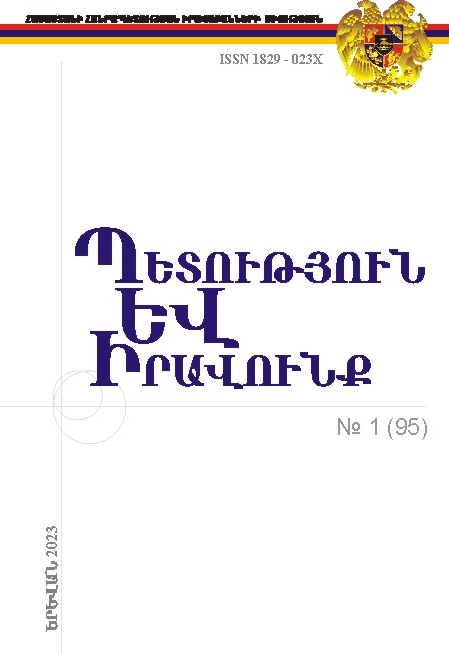THEORETICAL PROBLEMS OF THE CHARACTERIZATION OF CORRUPTION
DOI:
https://doi.org/10.46991/S&L/2023.95.026Keywords:
corruption, bribery, fight against corruption, abuse of power, abuse of official position, receiving profit or benefit, anti-corruption strategyAbstract
The article is dedicated to the identification of theoretical and practical problems of defining corruption, the observation of which in the framework of the scientific dimension can be of significant importance in making the process of fighting corruption more objective and effective. Revealing the content of corruption as a set of problems weakening the stability and immunity of legal institutions of society is an important guarantee of overcoming these problems.
The study of various strategic documents for the development of the fight against corruption indicates the lack of a unified and general definition of corruption, which in a number of cases complicates the process of evaluating the results of the implemented fight, so the reference to the theoretical and practical problems of the definition of corruption stems from the existence of the above problems. As a result of a complex study of the theoretical literature and regulations of legal acts, the article highlights the components that play a key role in the definition of corruption. Among those components are pursuit of profit or benefit, distortion of justice, agreement to receive/give benefit, abuse of position, systemic nature. The definition of corruption was also presented in the light of the accounting of the above components and the disclosure of their content.
Downloads
Published
Issue
Section
License
Copyright (c) 2023 State and Law

This work is licensed under a Creative Commons Attribution-NonCommercial 4.0 International License.

